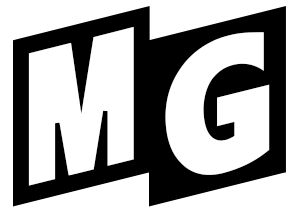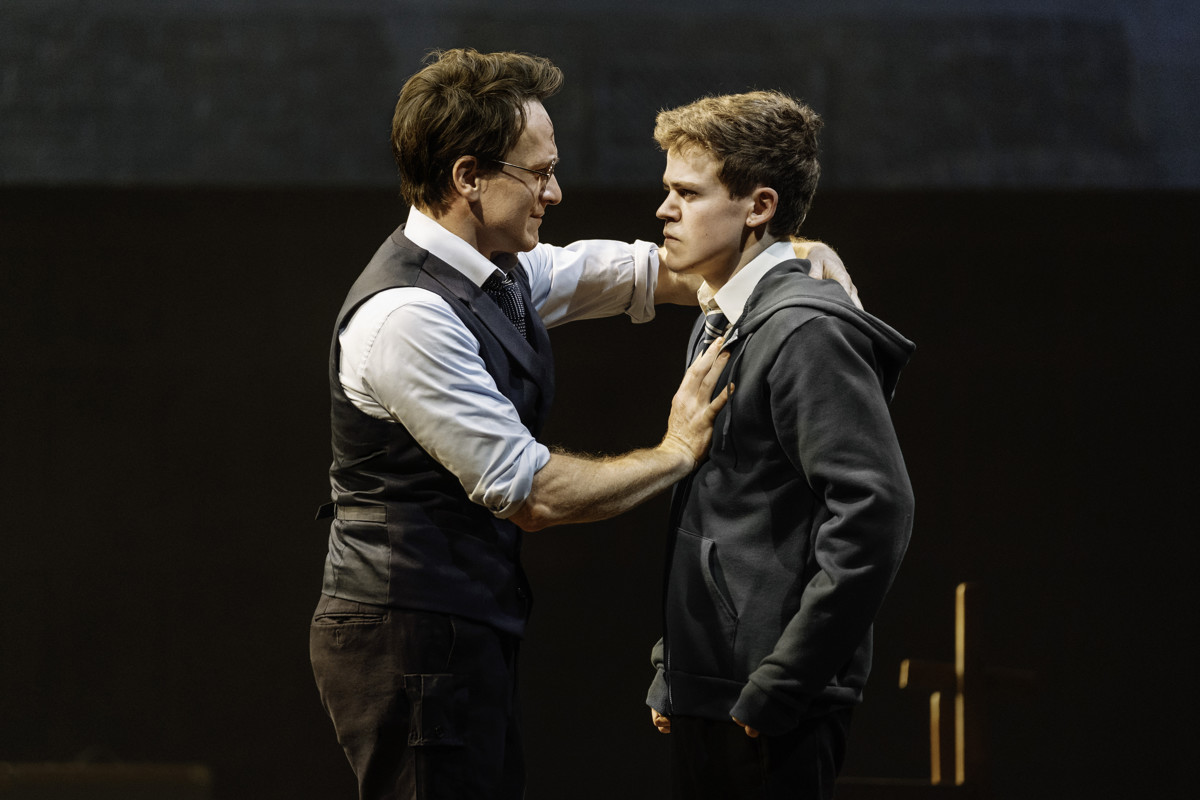Seeing “Harry Potter and the Cursed Child” on Broadway is more than simply entertaining. For anyone disappointed by the way the Harry Potter movies adapted the books, it can feel like a healing experience. Seeing these characters, Hogwarts, and the entire Wizarding world onstage is like reuniting as an adult with friends you made as a child. The play brings into sharp relief two major aspects of Harry Potter storytelling that the movies messed up, and takes us back, with exhilaration, to the ethos of their source material.
1. The Muggle gaze
In the first Harry Potter story, both you and Harry are seeing the world of magic for the first time. It makes sense for the Sorcerer’s/Philosopher’s Stone movie to linger on the incredible sights of the Wizarding world — the animated candy, the flying broomsticks, the funny hats. You’re seeing the world through Harry’s eyes, and Harry, too, is amazed at the existence of magic.
Yet later films in the series continue to express a constant awe at magic, fixating visually on mundane details like a man stirring the spoon in his tea or the ceiling of the Great Hall at Hogwarts. This isn’t just distracting; it’s alienating. By now, Harry is used to magic. He’s adjusted to magic’s role in his daily life. Yet we, the audience, are still supposed to gawk at every spell and enchantment, which is even sillier since, as moviegoers, we’re all used to seeing impossible sights on screen.
It all adds up to you, the viewer, being told the story from an outsider’s perspective. The camera seems to ask, Aren’t you impressed, you dumb Muggle? You’re not living Harry’s experiences with him; you’re watching someone totally unlike you do things you can never dream of doing. You can never be like the characters in Harry Potter, because even the mechanics of their daily lives are foreign to you. Magic is no longer a metaphor for your own experiences; it’s something fanciful and essentially Other. Between this and the way the films compress the plot to save time, the whole Wizarding world feels less real, less lived-in.
Now, some years since Harry was last in movie theaters, “Harry Potter and the Cursed Child” refuses to condescend to its Muggle viewers. Seeing magic onstage — everything from Polyjuice Potion transformations to levitation spells — is certainly impressive, but it’s never the focal point of the action. Magic is a means to a storytelling end, not just something shiny to look at. The audience isn’t being asked to marvel at the magic any more than Harry does. Both you and Harry are used to it by now. You’re not a Muggle anymore.
2. Toxic masculinity and the value of relationships between men
The Harry Potter movies slighted many, many of the books’ characters, but perhaps none more so than Ronald Weasley. In the books, Ron is Harry’s closest confidante, his emotional anchor. A rift between Harry and Ron is one of Goblet of Fire’s most significant arcs, and in the Second Task, when Harry must rescue “what [he’ll] sorely miss,” that thing is, as Dobby puts it, “Harry’s Wheezy.” Harry doesn’t love anyone more than he loves Ron.
But in the movies, Ron is craven, spineless comic relief, more of a misfit in Gryffindor House than Neville could ever be. Some of his best lines — “If you want to kill Harry, you’ll have to kill us too”; “We’re with you whatever happens” — are given to Hermione instead. Why? The most obvious answer is a discomfort on the screenwriter’s part with portraying emotionally intimate male friendships. Harry and Ron can share laughs, but if Harry wants to talk about his feelings on screen, he has to take it to his female friends.
(As an aside: This is, of course, also why movie-only viewers are confounded by Hermione’s decision to pair up with Ron rather than Harry. In a true blessing, “Cursed Child” offers a thorough debunking of the notion that Ron and Hermione aren’t right for each other. The play shows us multiple alternative scenarios where, without each other, Hermione and Ron grow into sadder, less accomplished adults who still yearn for one another.)
“Cursed Child” fires back at this disdain for male friendship with gusto. The heart of the play is the deep, unrepentant love between best friends Albus Severus and Scorpius. When Harry tries to keep the two boys apart, Albus threatens to run away from Hogwarts rather than obey. Draco visits Harry and tells him, “My son is in tears” because of Harry’s decision. A stage direction in Act Two, Scene Twelve simply states that “both [are] full of unhappiness.” And when Scorpius is transported to a timeline where Albus Severus was never born, he is horrified to discover that without the other boy’s friendship, he has become a terrible person, cruel and obsessed with social posturing. The intimate relationship between the two boys makes them both better, and over the course of the play, they come to appreciate that more and more, even becoming comfortable with hugging each other.
ALBUS: I’ve been looking for you everywhere . . .
Act One, Scene Ten
SCORPIUS: And now you’ve found me. Ta-da! I was hardly hiding. You know how I like to — get on early. Stops people staring. Shouting. Writing “son of Voldemort” on my trunk. That one never gets old. She really doesn’t like me, does she?
ALBUS hugs his friend. With fierceness. They hold for a beat. SCORPIUS is surprised by this.
Okay. Hello. Um. Have we hugged before? Do we hug?
The two boys awkwardly dislocate.
ALBUS: Just a slightly weird twenty-four hours.
ALBUS: I know, I think it’s a bonding thing or something similarly vomit-inducing. Still, you know, I think I’ll go.
Act Four, Scene Fourteen
SCORPIUS reaches in and hugs ALBUS.
What’s this? I thought we decided we don’t hug.
SCORPIUS: I wasn’t sure. Whether we should. In this new version of us — I had in my head.
ALBUS: Better ask Rose if it’s the right thing to do.
SCORPIUS: Ha! Yeah. Right.
The two boys dislocate and grin at each other.
In parallel to the storyline of male friendship, the story also uplifts the value of empathy and love between fathers and sons: Harry and Albus Severus, Draco and Scorpius, Amos and Cedric Diggory, and even Albus Dumbledore and Harry. Dysfunction in paternal relationships is the engine of four entire acts of plot, and Scorpius and Albus gradually come to realize the tremendous benefits of fathers and sons having strong emotional connections. By Act Three, Scene Twenty, when Albus has the chance to give Cedric one last message before Cedric faces his death, Albus decides to say simply, “Your dad loves you very much.” And a major emotional catharsis of the play comes in Act Four, Scene Eight:
ALBUS runs and throws himself into GINNY’s arms. GINNY receives him, delighted.
ALBUS: You got our note . . . ?
GINNY: We got your note.
SCORPIUS trots up to his dad.
DRACO: We can hug too if you like . . .
SCORPIUS looks at his dad, unsure for a moment. And then they sort of half hug in a very awkward way. DRACO smiles.
At the performance I saw, the audience burst into spontaneous applause before Draco could even say the “if you like” part of his line. Seeing Albus and Scorpius reunited with their parents and openly expressing their joy in that moment feels like the breaking of a tremendous wave of relief, an exhale that arrives after several hours of inhaling.
In fact, the entire play felt like an exhalation. I thought that in some sense, I had had to say goodbye to Harry in 2007, when I finished reading Harry Potter and the Deathly Hallows for the first time. But here he is again, in the flesh, exactly as I know him, though he’s aged and grown. Here are his friends and his whole world. Here are the emotional resonances and poignant subtleties of his story, lived out over and over, four times a week, every week. More than any spell, that is the real magic that happens onstage.
Featured image photo credit: Manuel Harlan

